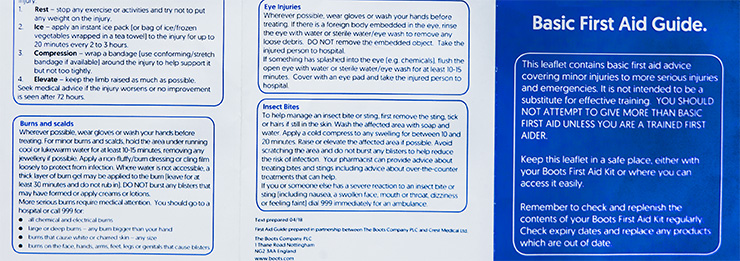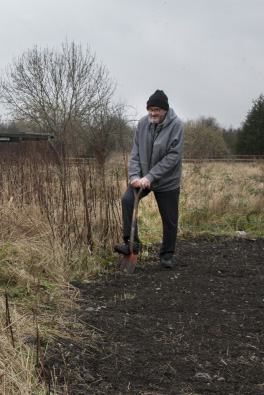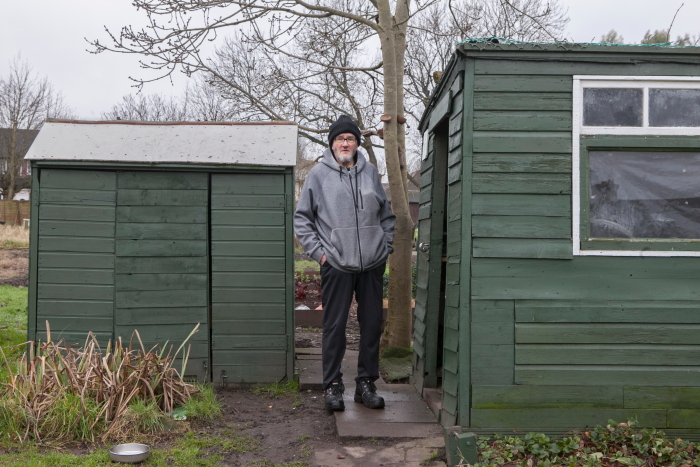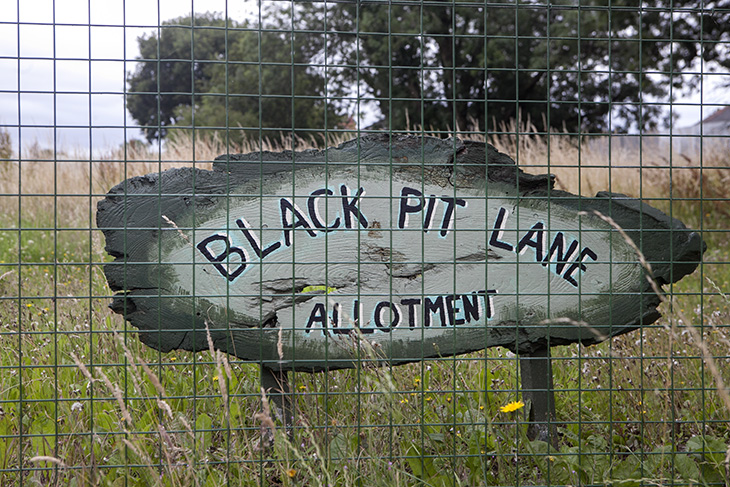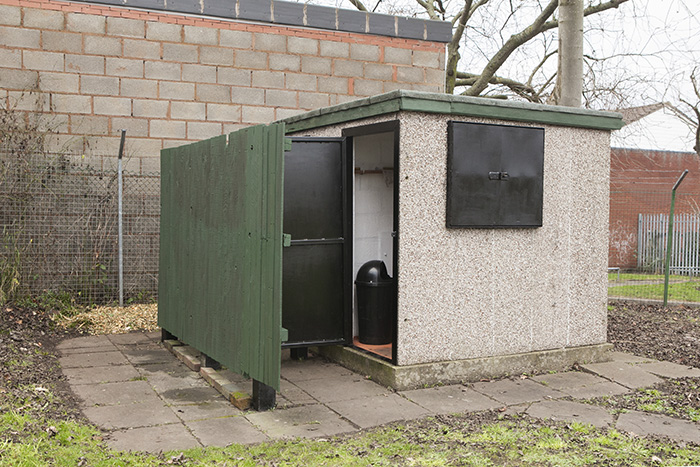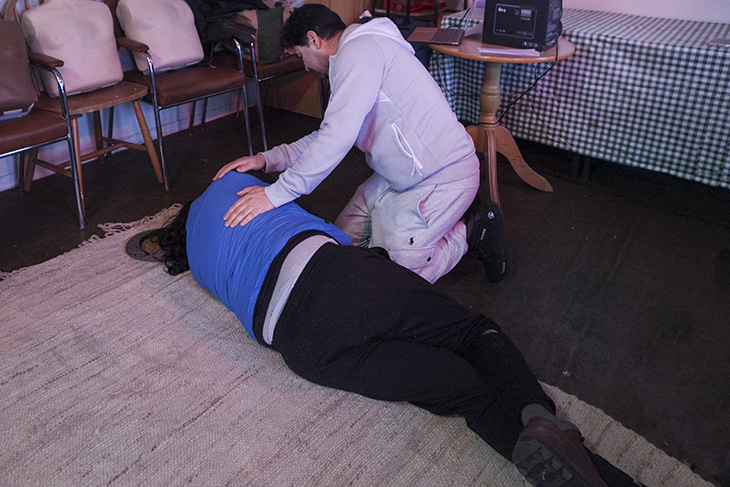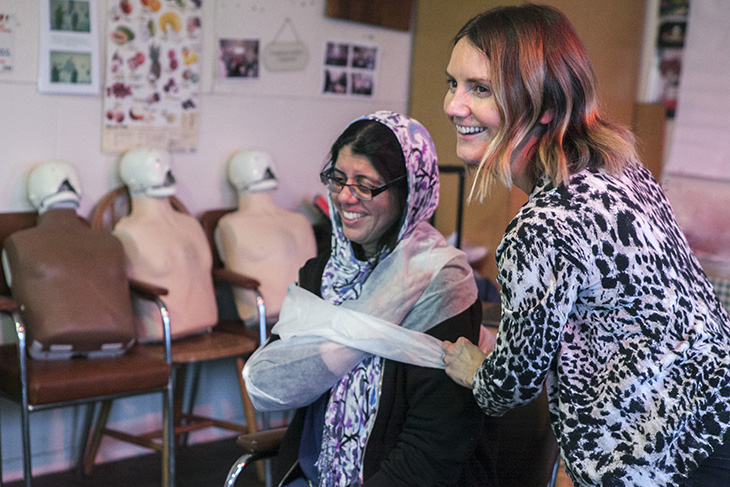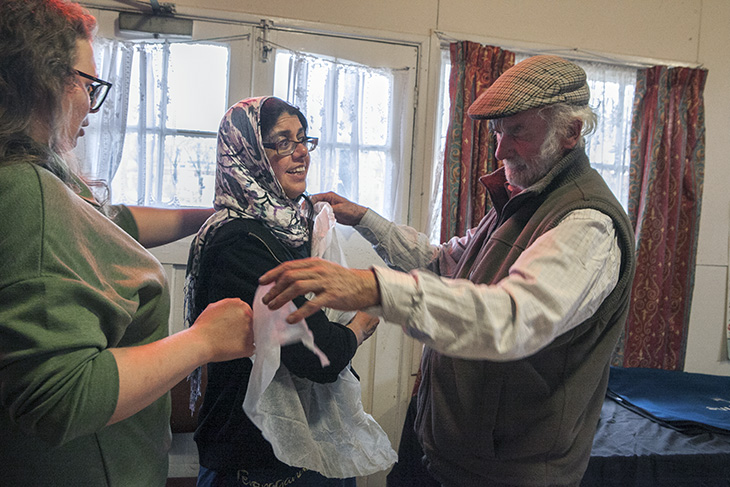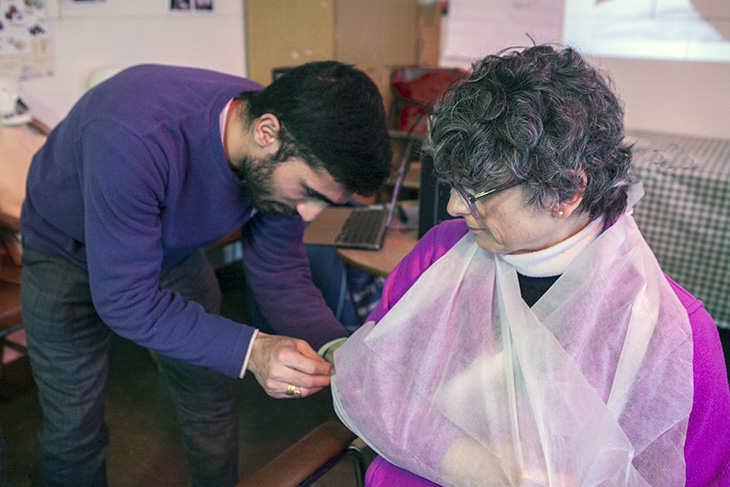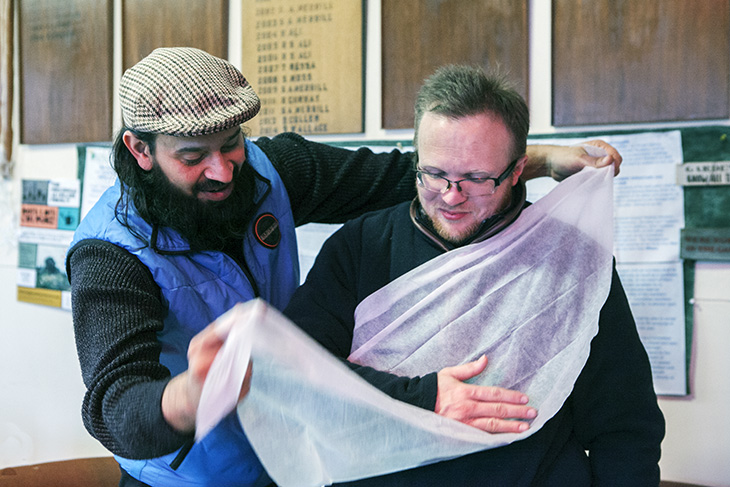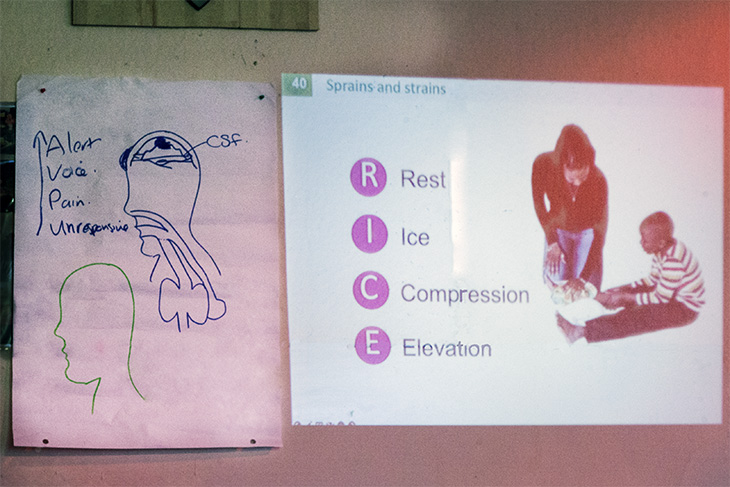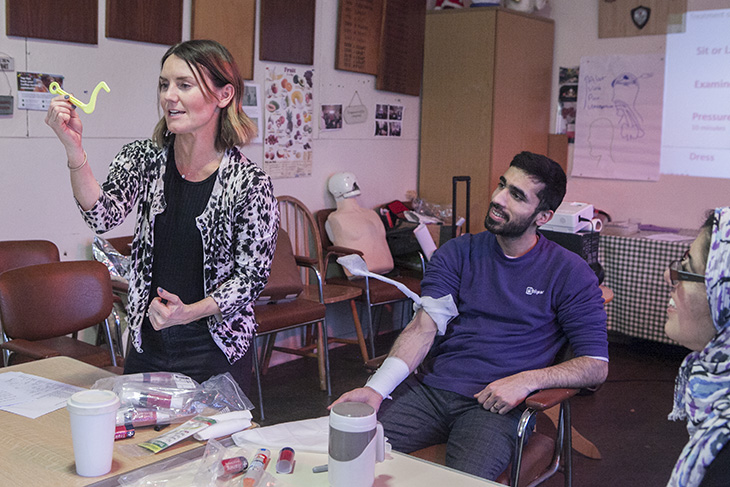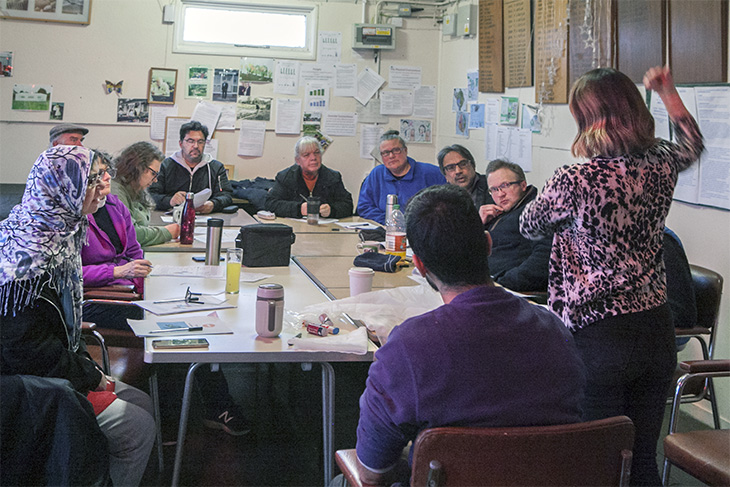During the lockdowns in 2020-22, we all became a lot more aware about health issues, and that’s left a few helpful legacies like taking more care with handwashing. But one thing we didn’t fully address was the possible consequences of people having accidents on the site – especially if they are on their own, or the only people around aren’t geared up to deal with accidents and emergencies.
In June 2020, Ward End Gardeners Association (WEGA) lost a much-valued member called Graham Smith, who used to do all sorts of maintenance work at his site at Blackpit Lane – renewing fencing from recycled wood, making brick paths between plots, painting the toilet block, and an attractive contact sign by the gate. He made plot number signs for other sites too and looked after the cats who take care of the rodents on site.
One day he was using a strimmer on a vacant plot covered in tall grass and had a brain haemorrhage: he collapsed and died instantly (according to the postmortem), but it was a shocking as well as upsetting event for us because no-one found him until 36 hours later. As he was a person living on his own, no-one raised the alarm when he didn’t go home that day. That was a wake-up call that we needed to pay more attention to health and safety matters and develop a policy and practices to address the possibility that catastrophic things can happen – even if we can’t always deal with the worst case scenarios like in Graham’s case.
Health and safety on Allotment Sites is not the easiest thing to manage. We aren’t employers with a decent budget to spend on training and safety equipment. We rely on people using their common sense to look after their own health, safety and welfare when they come to garden on their plots. Prevention is better than cure, so our Health and Safety policy (which has taken a long time to develop) is about trying to make sure we DON’T have accidents on the site and that people do take precautions. WEGA has a lot of new plotholders including people new to gardening, so it’s extra important that more experienced gardeners give guidance on things like use of unfamiliar tools, or not over-doing it especially if you are getting on or have a health condition – or just not working too long in hot weather with nothing to drink! We’ve had some ‘near misses’ with people falling on trip hazards and getting dehydrated during heatwaves, and that has reinforced the need to do regular checks and risk assessments as well as give warnings to ‘newbies’.
The near misses and minor accidents tell us that we can’t rely on prevention all the time: we need to be ready to act when things happen, and not just hope they won’t.
So last year the WEGA Committee decided to organise an Emergency First Aid training course: the idea was to train up at least a few plotholders on each of our five sites in Ward End. We asked Natalie White from New Training to run the one-day certificated course she delivers, and customise it for the allotment situation. We were thinking of accidents like garden forks though your foot, canes in the eye, or reactions to plants and insect bites – that sort of thing.
On Saturday 4th March, the course took place in the Northleigh Road pavilion for 12 people. Natalie is an excellent and well-informed trainer who starts from where you are at and explains clearly with diagrams the background about how the body works so you understand why you follow certain First Aid procedures. After demonstrating the techniques, she gets everyone involved in trying them, and makes it fun even when you’re thinking about the possibility of a cardiac arrest or a bad accident.
In the 6 hour programme (including breaks and lunch) we covered all the things you would expect in a First Aid course so you can cope with serious and not-so-serious situations – from unconscious casualties and head injuries to muscular sprains, wounds, eye injuries and allergic reactions. And participants had a chance to share their experience and get to know each other while wrapping each other in bandages or thumping each other to help eject a choking object.
The only problem is now that we have to review our first aid kits and throw away out-of-date items or things which shouldn’t be included such as creams and pills. And we need to think about how to make the First Aid box more accessible without making it easy to steal.
Another issue which came up is the availability of defibrillators which can save lives if someone has a cardiac arrest or heart attack. They cost around £1000, and can be found in various places, but not necessarily accessible – and obviously a target for thieves. With the number of older people and others with health problems coming on to allotment sites, having a defibrillator available would be a very useful piece of equipment to have, but not really affordable or possible to keep secure on an allotment site .
Hopefully WEGA will be able to run the course again to enlarge the pool of people able to be First Aiders when the need arises. After all, in the height of summer allotment sites could be in use 14-16 hours a day 7 days a week, so it would be hard for us to have too many First Aiders especially with 5 sites to look after.
I haven’t heard of any other First Aid courses being run for allotment people and associations and can definitely recommend this company if anyone reading this post is thinking of doing something similar.
Article by Hester Blewitt, Secretary WEGA
Contact details for NEW Training
Web – new-training.co.uk
Facebook – facebook.com/newtrainingbrum
Linked In – linkedin.com/in/natalie-woo/
07540 255 644

